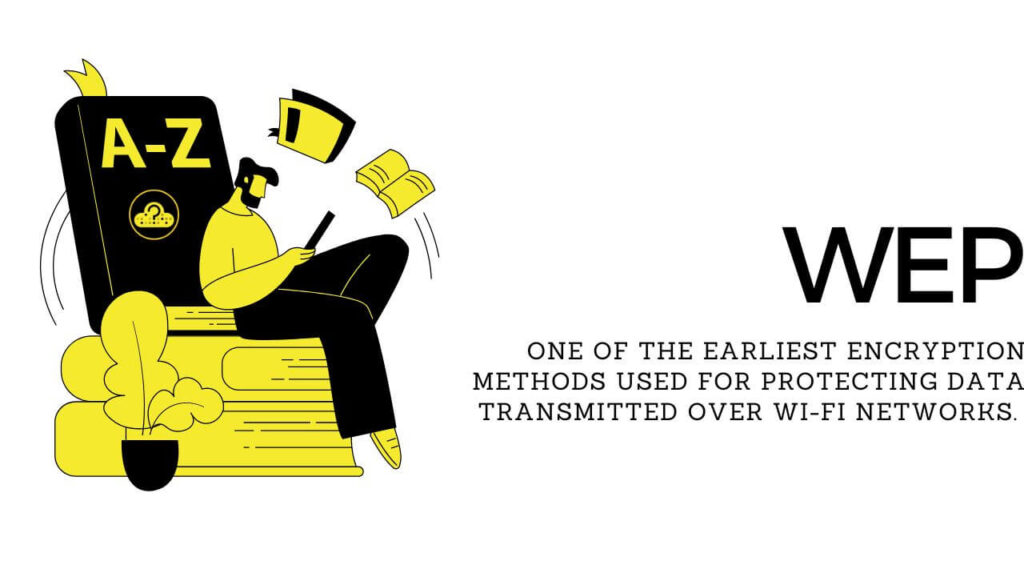What Is WEP?
- Short Definition:
- Wired Equivalent Privacy (WEP) is a security protocol designed to secure wireless networks. It was one of the earliest encryption methods used for protecting data transmitted over Wi-Fi networks.
- Extended Definition:
-
Wired Equivalent Privacy is an early security protocol developed for wireless networks. It was introduced as a means to provide encryption and protect data transmitted over Wi-Fi networks from unauthorized access. WEP uses a symmetric encryption algorithm to encrypt data packets transmitted between wireless devices and access points. The encryption key used by WEP can be either 64 bits or 128 bits in length. However, WEP has been widely recognized for its security vulnerabilities, which have rendered it ineffective against determined attackers.
One of the main weaknesses of this early protocol is its reliance on a static encryption key that remains constant over time. This makes it susceptible to attacks that exploit weaknesses in the encryption algorithm and key management. In particular, the vulnerability known as the “WEP key cracking” attack allows attackers to discover the encryption key by analyzing a sufficient number of encrypted packets. Due to these vulnerabilities, the use of WEP has been strongly discouraged in favor of more secure Wi-Fi security protocols, such as WPA (Wi-Fi Protected Access) and its successor, WPA2.
These newer protocols utilize stronger encryption algorithms and implement more robust security mechanisms to protect wireless networks. It is important for network administrators and users to be aware of the limitations and security risks associated with WEP. Whenever possible, upgrading to a more secure Wi-Fi security protocol is highly recommended to safeguard wireless communications and prevent unauthorized access to network resources.

For more definitions, check out our dedicated Definitions List.







